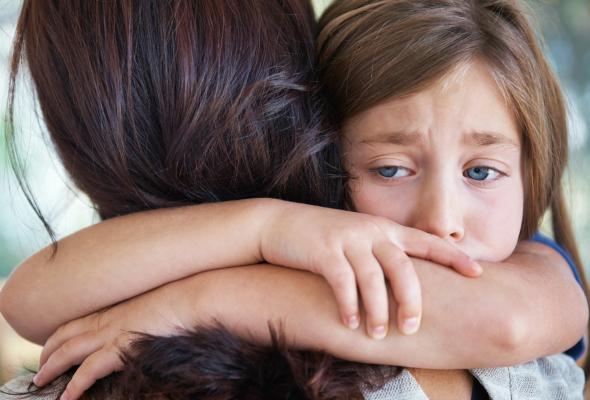Talking with kids about death
Published on: October 2, 2018 | by: Alethia
I have heard a saying that seems very true. “If you are old enough to love you are old enough to grieve”. I wanted to give some practical information about talking to our children about death. It is hard to know what to say and how to say it when tragedy strikes. Here are some helpful ways to comfort and communicate with your kids about a topic that can be difficult and often times uncomfortable. Remember, you are a powerful influence in your child’s life and they need to hear from you in a way they can understand and a way that brings comfort and hope. Below are some helpful ways of walking with your child through grief.
How to talk with kids about death
- Listen Closely – What is your child saying? What questions is your child asking? Often times your very presence is comforting. Be careful to listen closely. Validate what they are saying as well as the feelings they are expressing.
- Death is not a taboo topic – Help your child know that you are not afraid to talk about hard things. You can enter into the pain and stay present. It is valuable to allow yourself to feel sad and show emotion to your child. You are modeling emotional health (I know what I feel and I can communicate it in appropriate ways) for your child. It is healthy to talk about grief and talk about people we have loved who have died. Grief is a human reaction to loss which binds us together. Teaching our children about death, grief, hope, and love is our responsibility as they grow and mature.
- Speak clearly – Younger children need concrete language. Euphemisms are very confusing for kids. Terms like “passed away”,” lost”, or “gone to a better place” are confusing for younger children. It is important to use clear terms to describe death. For a young child it is important to explain that death means someone does not breath, eat, or feel hungry or cold and we will not be able to see them again (ex: Aunt Suzy will not be at your birthday party). The younger the child the more concrete the conversation needs to be.
- Be patient – It is important that death (and other hard topics) is an ongoing conversation with children. It is not optimal as a one time talk after a tragedy. Some things grow best over time and these types of conversations must be revisited time and time again as the child processes a loss. Children may need to be reminded they are loved and safe and have many people in their life who care for them.
- Be mindful of anxiety – Worry and fear may increase in certain kids. When tragedy strikes it reinforces and reminds us that there is a possibility that the worst can happen. A healthy response from the parent is needed to help them feel secure. Talk openly about worries and fears. Remember key points of anxiety:
- Talk about probabilities – How likely is it that this will happen? Ex: Not everyone who gets sick dies. The vast majority get well.
- Make thoughts more accurate and less negative – Is this worst-case scenario thinking?
- Tolerate Uncertainty
- Focus on ways of coping – anxiety is the overestimation of the threat and the underestimation of my ability to cope or manage – focus on capabilities and resources
- Bring faith into the conversation
- Be truthful – Your child must be able to trust you. If you don’t know the answer, and often times there are no clear answers, speak truthfully and admit your uncertainty. One of the life skills we want our kids to learn is the ability to tolerate uncertainty.
- Give Hope – It is vital that children understand the role of faith in grief and loss. Talk openly about your beliefs in age appropriate ways the child can understand. Remember that well defined concrete terms bring comfort and security to children so be specific with your words and make sure your child understands what is being said.
Developmental Stages of Understanding Death
- Preschoolers mostly see death as temporary. This may be reinforced through cartoons or movies. Permanence is a developing concept in a young child.
- Between the ages of five and nine, most children have an understanding that living things will eventually die. The death of a pet may be the first true experience a child has with the permanence of death.
- From nine through adolescence, children begin to understand fully that death is irreversible and permanent and they too will someday die. They begin to struggle to find meaning.

Four Concepts of Death
- Irreversibility – Death is permanent
- Finality – All functioning stops with death
- Inevitability – Death is universal for all living things
- Causality – Understanding of causes of death
As you talk with your child it is important you try to listen for their level of understanding in each of the above-mentioned areas. This will help guide your communication. If you see that your child is not coping well with a loss it is important to ask for help. Talk with teachers to see if there are any behavioral changes at school. Any changes in sleeping and/or eating, mood changes, or behavioral changes need to be addressed. Play therapy is an excellent resource for young children to process through grief. Contact our office if you need additional resources or have questions about counseling.



